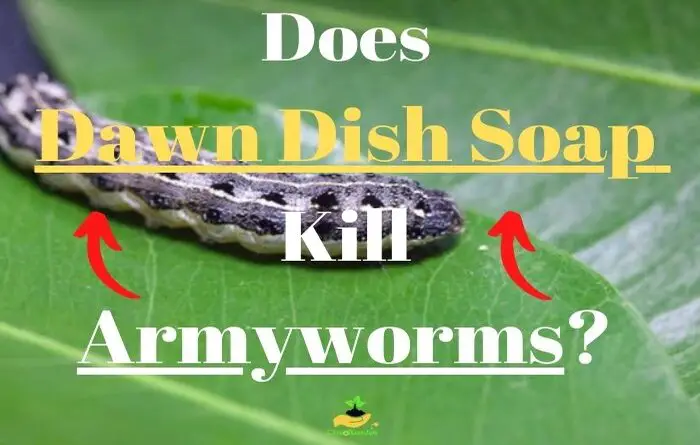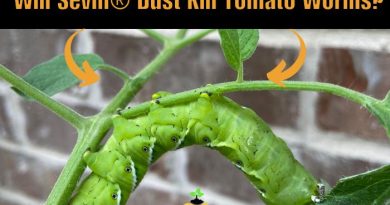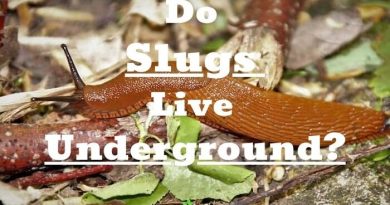Does Dawn Dish Soap Kill Armyworms? (Here is the Answer)
Are you struggling to control an armyworm infestation in your garden? As an experienced gardener, I know how frustrating and challenging it can be to deal with these destructive pests. But did you know that Dawn dish soap can be an effective armyworm pesticide?
In this blog post, I’ll share my top tips on using Dawn dish soap to kill armyworms, including the best methods and precautions to take.
Does Dawn Dish Soap Kill Armyworms
Yes, Dawn dish soap does kill young and small armyworms that come into direct contact with the solution. However, larger or more mature armyworms may be more resistant to the soap and may require multiple treatments. The soap works by suffocating the worms and disrupting their cell membranes. To use Dawn dish soap as an armyworm pesticide, mix one tablespoon of soap with a gallon of water and spray the solution on the affected plants. Repeat every few days until the armyworm infestation is under control.
Armyworms are pests that feed on plants and can cause significant damage to crops and gardens.
Dawn dish soap contains surfactants, which are substances that reduce the surface tension of liquids and help to penetrate the protective layer of insects.
When the soap is applied to armyworms, it causes the worm’s cuticle, or outer layer, to dry out and disrupts the fluid balance within its body, leading to death.
It is important to note that while Dawn dish soap can be effective in killing armyworms, it may not provide a long-term solution to controlling armyworm populations.
It may be necessary to use multiple applications to control armyworms, and professional pest control methods may be more effective in the long run.
Types of Army Worms
- Western Yellow-striped Armyworm: They have bright yellow stripes running down the sides. Females lay eggs in clusters covered by a cotton-like material.
- Beet Armyworms: They are pale green in color with light-colored stripes running the length of the worm. Eggs are laid and covered with hair-like scales.
- Yellow-striped Armyworm: They have two large yellow stripes and many smaller ones. The larvae are black.
How much Dawn soap does it take to kill Armyworms?
The amount of Dawn dish soap needed to kill armyworms depends on a number of factors, including the concentration of the soap solution, the size of the worms, and the environmental conditions.
However, for killing army worms, a solution of 1 to 2 teaspoons of Dawn dish detergent per gallon of water is frequently recommended. It’s crucial to note that applying too much soap might harm plants, so start with a lesser concentration and gradually increase it if necessary.
How To Use Dawn Dish To Kill Armyworms
The effectiveness of using Dawn dish soap to kill armyworms can vary depending on various factors, such as the age and size of the armyworms, the concentration of the soap solution, and the type of plant being treated.
It is important to note that the soap solution will only kill the armyworms that come into direct contact with it, so it is important to repeat the treatment every 3-4 days until the armyworms are gone.
What You Need
For the effective removal of armyworms with the help of the dawn dish you will need the following items:
- Dawn dish soap
- Water
- Spray bottle or sprayer
- A face mask to cover your face
- Gloves to protect the hands
- Air freshener
- Air conditioning facilities available in case of need
Step-by-Step Walkthrough
Here is a step-by-step walkthrough of how to kill armyworms using Dawn dish soap:
- Prepare the solution: Fill a spray bottle or sprayer with 1 gallon of water. Add 1-2 teaspoons of Dawn dish soap to the water and mix well.
- Identify the affected plants: Inspect your crops and plants for signs of armyworms, including holes in leaves and chewed plant parts.
- Spray the solution: Spray the solution directly onto the armyworms and the affected plants, making sure to cover all surfaces. Focus the spray on the undersides of the leaves, as this is where armyworms tend to hide.
- Repeat the treatment: Repeat the treatment every 3-4 days until the armyworms are gone.
- Monitor the plants: Continuously monitor the plants for signs of armyworms and re-treat as needed.
Why Is Dawn Dish Effective In Killing Armyworms
Dawn dish soap is effective in killing armyworms for the following reasons:
- Surfactant content: Dawn dish soap contains surfactants, which are substances that reduce the surface tension of liquids and help to penetrate the protective layer of insects.
- Drying out the cuticle: When the soap is applied to armyworms, it causes the cuticle, or outer layer, of the worm to dry out, disrupting the fluid balance within its body and leading to death.
- Interference with breathing: The soap may also interfere with the armyworm’s ability to breathe, further contributing to its death.
- Dehydration: The soap solution works by penetrating the armyworm’s protective layer and causing it to dry out, leading to dehydration and ultimately, death.
What Are Armyworms And Why Are They Bad
Armyworms are the caterpillar stage of certain species of moths and are considered pests because they feed on plants, including crops and ornamental plants.
There are several different species of armyworms, but the most common is the fall armyworm and the beet armyworm.
Armyworms are worm-like insects with green or brown bodies and stripes or spots. They feed on the leaves of plants, leaving large holes and sometimes eating entire leaves.
They can quickly multiply and cause widespread damage to crops and gardens and are difficult to control due to their ability to move quickly and their resistance to many common insecticides.
Therefore, armyworms are pests that feed on plants and can cause significant damage to crops and gardens.
They are especially problematic for farmers and gardeners and can lead to decreased yields and increased costs.
Armyworms are considered to be bad for the following reasons:
- Agricultural damage: Armyworms cause significant damage to crops, reducing yields and affecting crop quality.
- Rapid spread: They can quickly reproduce and spread, making it difficult to control their populations.
- Defoliation: Armyworms feed voraciously on leaves, stems, and other parts of plants, often leading to complete defoliation.
- Crop failure: In severe cases, armyworms can cause complete crop failure.
- Economic impact: The damage caused by armyworms can have a significant economic impact on farmers and the agricultural industry.
- Environmental impact: Large populations of armyworms can hurt the environment and the biodiversity of an area.
Things To Keep In Mind When Dealing With Armyworms
When dealing with armyworms, it’s important to keep the following things in mind:
Early Detection
Regularly inspect your crops and plants for signs of armyworms, and take action as soon as you notice them.
Integrated Pest Management
Consider using a combination of methods, such as physical removal, natural predators, and chemical controls, for a more effective and sustainable solution.
Timing
Treat armyworms when they are young and small, as they are easier to control and less damaging at this stage.
Environmental Impact
Be mindful of the impact of chemical controls on the environment and consider using more eco-friendly options.
Resistance
Some armyworm populations have developed resistance to certain chemical controls, so it is important to regularly rotate the methods used.
Monitoring: Continuously monitor the population levels and the effectiveness of the control measures to make any necessary adjustments.
Professional Help
If the infestation is severe or widespread, it may be necessary to seek professional help to manage the situation effectively.
How to prevent Armyworms
In prevention, ensuring your yard is filled with helpful predators is a big step. Grow lace and ladybug-attracting plants like dill, cumin, coriander, yarrow, marigold, and fennel to attract those gorgeous bugs to your yard.
Most of these will also attract some predatory wasps, but include other choices that may attract the predatory wasps tansy, lemon balm, and parsley.
While the goal is to have your beneficial predators and occasionally the pests themselves (like aphids) devour the eggs, making sure they have a constant supply of food available will encourage them to stay year-round.
If you can keep adult armyworm moths away from your plants, they cannot lay their eggs on them.
While this doesn’t work as effectively on grasses, using a Floating Row Cover as a Harvest-Guard on top of your other food plants can help protect them from a range of pests, including armyworms.
While this is mostly irritating and off-putting to armyworms, spreading some diatomaceous earth over the leaves and stems of your plants can encourage armyworms to find another food source.
Diatomaceous earth is harmless to people and pets, but it’s like crawling on razor blades on the super-sensitive skin of armyworm larvae.
Frequently Asked Questions
An easy way to test for armyworm is to pour soapy water over your lawn. Mix ½ cup of dish detergent with 1 gallon of warm water. Pour all the mixture in one place, where the lawn seems weakest. Wait 1-15 minutes.
It really depends on what kind of armyworm you’re trying to identify. However, there are variations internationally. They appear to be prevalent in areas where their natural food sources are found, so if you live in an area where rice is grown, you’re more likely to see armyworms feeding on rice in that area.
Aerate your lawn every year. Water your lawn regularly. Cut your grass at least two inches and keep weeds and wild grasses to a minimum. Fertilize. Regularly check for the presence of armyworms and larvae.




